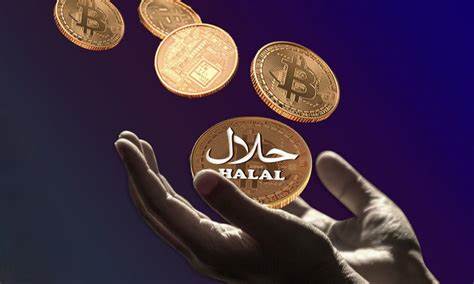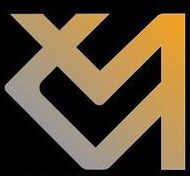In the rapidly changing digital era of today, cryptocurrencies have transitioned from a niche interest to a significant aspect of the world economy. With more individuals developing an interest in crypto trading, several are questioning a vital question: Is crypto trading halal?
If you’re curious about how cryptocurrency fits into Islamic principles and wants to explore halal crypto trading in a practical, optimistic way, you’re in the right place. Let’s dive deep and find clarity, step by step.
Table of Contents
Understanding the Basics: What Is Crypto Trading?
Let’s first observe what exactly is “crypto trading” before venturing into halal things.
Crypto trading is the act of buying, selling, and swapping cryptocurrencies like Bitcoin, Ethereum, and so many more. Crypto trading, just like stock trading, is all about predicting price movements. Traders aim to buy low and sell high to make a profit.
But crypto trading is 24/7 globally, not relying on conventional banking networks. Instead, it takes place over decentralized networks and is therefore very different from conventional finance.
Read More: how to use fibonacci retracement the right way in crypto TRADING
What Does “Halal” Mean in Trading?
In Islam, halal refers to anything permissible under Shariah law.
When investing or trading, several conditions must be met for the activity to be halal:

- Avoiding Riba (interest): Any interest earnings are prohibited.
- Avoiding Gharar (excessive uncertainty): All transactions should be clear and transparent.
- Avoiding Haram (prohibited) activities: Investing must not be utilized to fund businesses like alcohol, gambling, or any detrimental activities.
- Fairness and Justice: Both parties must be dealt with justly without being taken advantage of.
So, the crux is ethical, honest, and transparent trading.
Is Crypto Itself Halal or Haram?
Here’s where it gets a little sophisticated. Around the world, experts have put forth different perspectives because cryptocurrency is a newfangled thing. Yet increasingly more Islamic experts agree that cryptocurrencies may be halal, provided that:
• The cryptocurrency has real-world value.
• They are used to make legitimate transactions.
• They will not be used to finance haram activities.
• Trading methods should respect Islamic finance ethics.
A few Muslim scholars view cryptocurrency as a digital asset and not fiat currency, which can be regarded as acceptable under certain circumstances.
As technology advances and regulation improves, an increasing number of Islamic financial institutions are providing halal compliant crypto products.
What Makes Crypto Trading Halal?
Let’s look at what specifically makes crypto trading halal:
- Ownership and Custody
You must actually own the cryptocurrency when you buy it. Speculative trading when you don’t hold the coins (like in some futures contracts) can be haram because it involves gharar. - No Interest (Riba)
There are some platforms that give interest to borrowing or staking crypto. In halal trading, you must avoid receiving or paying any form of interest.
Choose spot trading where you sell and purchase directly without borrowing any loans. - Ethical Projects
Make sure that the cryptocurrency you’re trading is for ethical reasons. Some coins might be related to industries that aren’t compliant with Islamic principles thoroughly research each asset. - Clear Contracts
Transparency is the key.
Your transactions must be recorded, clear, and free from deceptive practices.
Read More: How To START a CRYPTO trading WITHOUT losing your mind or money
Types of Crypto Trading: Which Is Halal?
There are different ways to trade crypto. Some methods are more aligned with Islamic principles than others.
| Type of Trading | Halal Status | Why? |
| Spot Trading | Generally Halal | Direct buying and selling, no interest involved |
| Futures Trading | Needs Caution | Often involves speculation and leverage |
| Margin Trading | Mostly Haram | Involves borrowing with interest |
| Staking (Without Interest) | Can Be Halal | Depends on the model; avoid interest-based staking |
| Liquidity Mining | Needs Deep Review | Depends on the platform and terms |
Tip: When in doubt, stick with simple spot trading; buy, hold, sell. It’s straightforward and easier to ensure its halal.
Practical Steps for Halal Crypto Trading
If you’re excited to start halal crypto trading, here’s a practical action plan to guide you:
Step 1: Choose a Halal Friendly Exchange
Pick a reputable crypto exchange that supports spot trading without offering high-risk applied products by default.
Some platforms now even offer “Islamic accounts” that avoid interest.
Step 2: Research the Coins
Before investing, study the purpose and project behind a cryptocurrency.
Is it solving real-world problems? Is it backed by a useful technology?
If so, it’s more likely to be halal.
Red flags: Avoid meme coins, gambling-related projects, or tokens with a vague utility.
Step 3: Avoid applied products
Many exchanges entice users with leveraged trading for higher returns.
Don’t be tempted! Stick to buying real crypto assets directly with your money, no borrowing, no interest, no crazy risks.
Step 4: Keep Records of Your Trades
Have good records of your buys and sells.
Transparency is not only a finance principle but also Islamic ethics.
Step 5: Pursue Endless Knowledge
Crypto markets change rapidly. Keep learning, particularly about Shariah-compliant finance and new Islamic regulations in fintech.
Knowledge is a light that illuminates your path clear and secure.
Challenges and Risks in Halal Crypto Trading
As with any marketplace, there is risk involved in crypto trading. Halal does not mean risk-free.
Below are some concerns you need to be prepared to encounter:
- Volatility: Prices of crypto can change quickly and significantly. Emotion control is paramount.
- Fraud and Scams: Utilize trusted exchanges and double verify investment offers.
- Regulation: Crypto is in the developmental stages. Choose platforms that respect legal and ethical guidelines.
- Shariah Compliance Confusion: Since Islamic rulings differ slightly by scholars, always cite recent counsel.
Conquering these hurdles with patience, prudence, and prayer can lead you to prosperity economic as well as spiritual.
Opportunities in Halal Crypto
Despite the challenges, halal crypto trading holds great promise for Muslims around the world:
- Financial Inclusion: Crypto can offer equal access to financial systems for those who don’t have traditional banking.
- Empowerment: Young Muslims can be taught tech skills, finance skills, and ethical investment.
- Innovation: Many Islamic finance projects are now developing blockchain-based halal products e.g. tokenized real estate, blockchain sukuk, and halal fintech startups.
The future is promising. Those who approach it with good principles, honesty, and wisdom will be poised for success.
Common Questions About Halal Crypto Trading
- Is Bitcoin Halal?
Yes, according to most scholars as long as it is used ethically and traded without interest or gambling. - Can I Day Trade Crypto Hallal?
You can, but it’s trickier. Frequent buying and selling can lead to emotional, risky decisions. It’s preferable to trade medium or long-term on true asset value. - What About NFTs and DeFi?
These are new and developing territories. NFTs linked to art or tangible assets can be halal, while speculation NFTs and certain DeFi transactions can be problems.
Due diligence is required.
Conclusion: Moving Forward with Halal Crypto Trading
Halal crypto trading isn’t a choice; it’s a reality for those who think about it thoughtfully.
By being sensitive to Islamic principles of honesty, fairness, transparency, and righteous behavior, you can be secure and confident in adopting the future of finance.
Remember always:
• Your intentions matter. Pursue ethical returns, not profane wealth.
• Your knowledge matters. Inform yourself and stay alert.
• Your community matters. Grow and share wealth in a way that helps others.
Crypto trading is a means. Like any means, it’s worth depends on how you deploy it.
With intelligence and faith, you can thrive in this landscape, not just creating wealth, but barakah along the way.
The future is entirely blank and in Allah’s will, a brilliant one.
